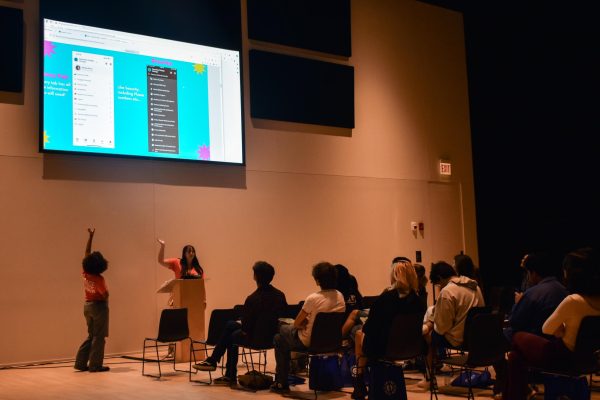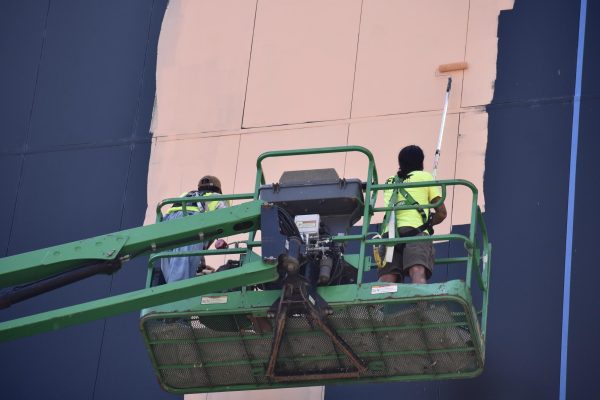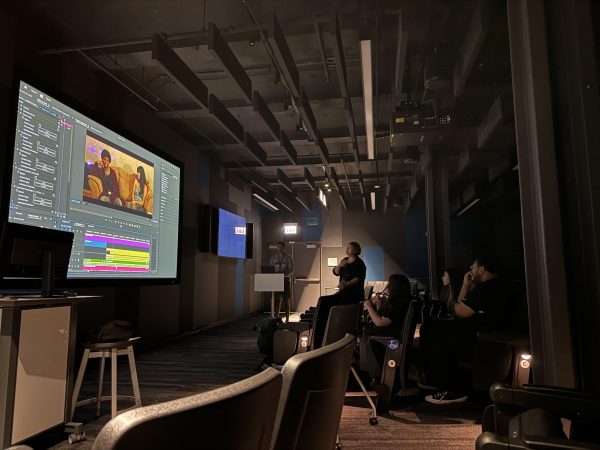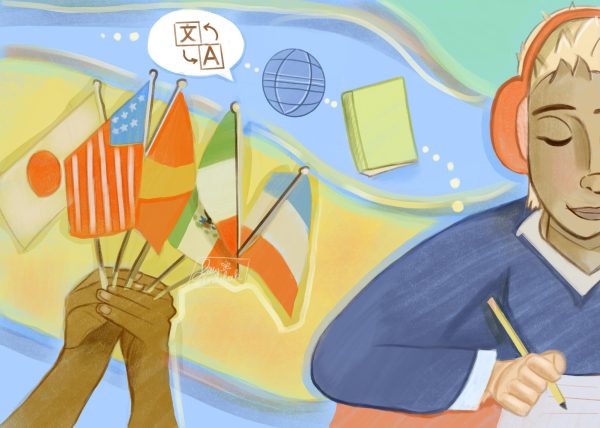Students, activists ponder the future of El Salvador
December 7, 1998
It was a night of inspiring heroes, tragic events, and the fight for justice as FMLN (Fuerzas Armadas de Libercion Nacional) members and solidarity/labor activists united at DePaul University to discuss the past, present and future of El Salvador.
“El Salvador is like an abandoned infant that needs to grow and develop,” said Norma Guevara, a member of political commission of FMLN.
“We must realize that justice transforms from a life of suffering into a life of dignity,” Guevara said. Thirty students attended the evening lecture on the topic of El Salvador and the FMLN organization Nov. 17 at DePaul University. It was organized by Chicago’s CISPES (Committee in Solidarity with the People of El Salvador), the DePaul El Salvador Project, and the Chicago Committee of Fair Elections. The organizers also collected donations to contribute to the victims of Hurricane Mitch. The CISPES organization, which was found in the 1980s, pressured the U.S. government to stop military intervention during the civil war in El Salvador. The war left 70,000 people dead and had over two million people fled the country.
Guevara, with the help of an English translator, stood nobly before a podium and spoke with serenity about the future plans of FMLN and its role in addressing the devastating effects of Hurricane Mitch.
“We are a party of poor people who need to open the doors to democracy. The time has come for justice and we need your cooperation to take part in our revolution,” she said.
The FMLN is a National Liberation Front that evolved from an outlawed popular guerilla front in the 1930s and recently into a bargaining party in the political arena. The purpose of the revolutionary movement was to search for a new economic order, with genuinely democratic and popular institutions capable of distributing the national wealth more evenly, promoting equality and social justice.
FMLN is currently fighting against the right-wing government that represents the interest of the wealthy. The people of El Salvador have fought long and hard to establish an opportunity to elect a democratic popular government. Because the FMLN had recently won legislative positions, they selected Facundo Guardado as presidential candidate and Nidia Diaz as vice-presidential candidate. The movement continues to have strong showings in the polls, indicating that it has a real possibility for winning the presidency in 1999.
“For the first time in my country we have a real opportunity to win,” said Mario Castro, representative of Base committee of FMLN in Chicago. “At this point in time, the struggle continues and we need all of you to help us in this effort,” he said. “The gap between rich and poor remain because of the neo-liberal power of the government. We have suffered tremendously over the years and we continue to struggle for the sake of change in our country.” Castro felt that the cause of Hurricane Mitch worsened the situation in El Salvador and enforced the downfall of their economic structure. At least 11,000 people reportedly were killed during Mitch’s week-long assault on Central America, including more than 6,000 in Honduras and 4,000 in neighboring Nicaragua. Hundreds also were killed in El Salvador, Guatemala, and Mexico. Mitch claimed two more victims in Florida before finally pushing back into the Atlantic.
Castro reminded students at DePaul that the months of November and December were historically tragic months for El Salvador.
People in El Salvador had witnessed many assassinations that occurred during the civil war in the 1980s. These took place mainly because the FMLN was just beginning to progress while working underground. According to Castro, the criminal justice system is so vicious and corrupt, that the government secretly formed military groups known as “Death Squads” to rid the country of any activists that opposed the government. Castro admitted that he too had family members who had disappeared.
Jill Dowling, East Coast Regional Director of CISPES, described the exploitation of women ‘maquila’ (sweatshop) workers in El Salvador. Dowling said that major corporations take advantage of cheap labor and violate other labor rights including child labor, unpaid overtime, and physical abuse. According to Dowling, a typical maquila worker earns $4 a day and works seven days a week. Up until the time of receiving Christmas bonuses, corporate officials illegally fire thousands of employers and rehire them in January. “The corporate staff can easily close down their factories if they suspect that a union is about to gather or labor costs seem to increase,” said Dowling.
Renny Golden is a local Central American activist and writer who recently published a book, “Hour of the Furnace,” which recalled real-life stories of people in El Salvador. Golden held poetry readings on the experiences of legendary leaders Jose Marti and Maria Teresa Tula.
Some of these popular name brands include K-Mart, OshKosh B’Gosh, JCPenney, Fruit of the Loom, and Sara Lee Knit Products.







